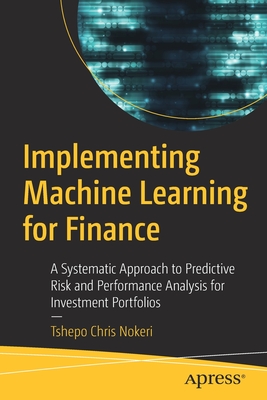Machine Learning for Asset Managers
暫譯: 資產管理的機器學習
López de Prado, Marcos M.
- 出版商: Cambridge
- 出版日期: 2020-04-30
- 售價: $1,110
- 貴賓價: 9.5 折 $1,055
- 語言: 英文
- 頁數: 152
- 裝訂: Quality Paper - also called trade paper
- ISBN: 1108792898
- ISBN-13: 9781108792899
-
相關分類:
Machine Learning
-
相關翻譯:
面向資產管理者的機器學習 (簡中版)
相關主題
商品描述
Successful investment strategies are specific implementations of general theories. An investment strategy that lacks a theoretical justification is likely to be false. Hence, an asset manager should concentrate her efforts on developing a theory rather than on backtesting potential trading rules. The purpose of this Element is to introduce machine learning (ML) tools that can help asset managers discover economic and financial theories. ML is not a black box, and it does not necessarily overfit. ML tools complement rather than replace the classical statistical methods. Some of ML's strengths include (1) a focus on out-of-sample predictability over variance adjudication; (2) the use of computational methods to avoid relying on (potentially unrealistic) assumptions; (3) the ability to "learn" complex specifications, including nonlinear, hierarchical, and noncontinuous interaction effects in a high-dimensional space; and (4) the ability to disentangle the variable search from the specification search, robust to multicollinearity and other substitution effects.
商品描述(中文翻譯)
成功的投資策略是一般理論的具體實施。缺乏理論依據的投資策略很可能是錯誤的。因此,資產管理者應該將精力集中在發展理論上,而不是在回測潛在的交易規則上。本元素的目的是介紹可以幫助資產管理者發現經濟和金融理論的機器學習(ML)工具。ML 不是一個黑箱,也不一定會過度擬合。ML 工具是對傳統統計方法的補充,而不是取代。ML 的一些優勢包括:(1)專注於樣本外的可預測性,而非變異的裁定;(2)使用計算方法以避免依賴(可能不切實際的)假設;(3)能夠“學習”複雜的規範,包括高維空間中的非線性、層次性和非連續互動效應;以及(4)能夠將變數搜尋與規範搜尋分開,對多重共線性和其他替代效應具有穩健性。











